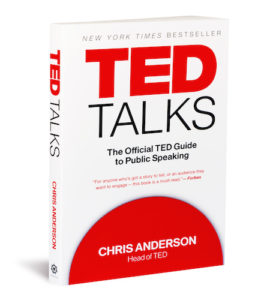Who is the interviewer?
A while back ago, I met a recruiter. She told me she often recruit for technical positions and sometimes there is a mismatch in the communication. This mismatch makes it hard for her to understand the candidate. In this post, I want to talk about what the problem is and how you can avoid it when you are doing interviews.
The Problem
So, what this recruiter told me is that sometimes the job hunters are overly technical with her. Like, they are basically just talking about their field of expertise using a lot of technical concepts.
Some job hunters that I talk to say: “the person that hire should understand the field of expertise” but I would argue that this is not always necessary. Why is that?
Because, sooner or later, you will have to explain what you do to an outsider anyways. Having a recruiter that is not technical is a test of your communication skills. Think about it. Let’s say that you are an engineer, meeting a non-technical recruiter. Someone that are not an engineer by training. Why do you need to be able to communicate with her, besides to land the job?
Because, in a real life working scenario, you will meet people all the time that have other backgrounds than yourself. You will meet marketers, general managers, accountants, sales staff, administrators etc. You need to be able to explain your work to all these people in meetings, coffee breaks and much more. You need to be able to communicate with people coming from all walks of life. This is something that I think was a big transition finishing University and joining the workforce. At University, I could safely assume that all my course mates had a similar frame of references that I had. They understood the same concepts and technical terms. This generally didn’t cause any problems with the understanding.
Shared concepts are important for understanding
It is important to think about concepts. In the great book TED Talks by Chris Anderson, he argues that an idea is communicated by using concepts that your audience already knows. Chris says, think about what concepts you think the audience will know. Similarly, I urge you to think about the other person when you send a job application or in an interview.
Being Aware of Your Assumptions
I want you to think about this question: what concepts can I assume this person will understand?
Some things are self-evident. Concepts and terms like “business”, “department” and “profit”. But what about “programmatic buying”? Probably not. Programmatic buying is the process of using technology to automate and optimize ad buying. So, if we are explaining a concept like programmatic buying, we can say something like:
“When you buy ads online, you would naturally want to have the ads that perform the best in terms of profit for the company. So, what I do with programmatic buying is that I help make the whole process of buying ads automatic. So instead of trying to figure out manually which ads to buy when, all that is just automated for you. You don’t have to do anything but your ads will still perform better than ever before, giving you more profit”
I am assuming that you find this explanation easier than the first one. No one will ever give you a gold medal for being over complicated in your language when you meet other people. So, is this explanation understandable?
I hope so. But, there is always a risk it is not. Maybe I assumed something about you as a reader that was not a fair assumption. Either in this post or in some other part of my writing. What I would love you to do is to tell me if something is unclear. I really want to make my writing easy for you to read. I believe in hard writing makes easy reading. Meaning, I am the one that should put in the effort of making myself understandable. Not you as the reader.
How to Know What the Other Person Know
How do I know what concepts the person know?
The short answer is – you don’t. The long answer is that it is fairly easy these days to get that first understanding about what concepts a person might have. Make sure that before you go to an interview, you go to LinkedIn and search for the person interviewing you. This is great for getting an understanding of the person’s background and guess about concepts they would know. Look at their profile.
Are they only recruiting for jobs like the one you are interviewing for?
If so, then they probably understand the specific jargon used in that particular position.
What is their education?
Having an education in a specific field will create the mental concepts in that field. So, if I meet an auditor, I can talk about things like corporate law, advanced accounting concepts and so on without really having to explain that much.
What is their working experience?
If they have been working for a long time in the field, they probably pick up the words that will come up frequently.
Summing up
Whenever you go to your next interview, or just want to explain what you do, think about the receiving end. Think about the other person and what kind of concepts they would probably understand. Use those concepts to explain what you can do.
If you find some concepts you don’t understand in this blog, please let me know. I want to make it easy for you to read this.





 Previous Post
Previous Post Next Post
Next Post